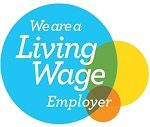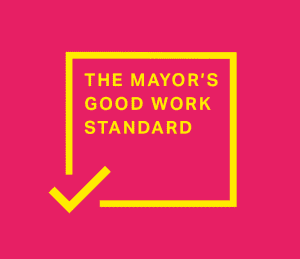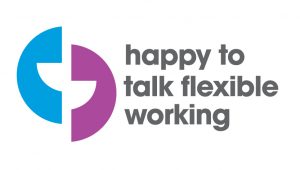The Parent Trap: How childcare costs are just one piece of the puzzle for low-income households

Following today’s Spring Budget announcement, our Research and Policy team reflect on what else needs to change to support parents into decent work.
In today’s Budget announcement, we are pleased to see the Government take positive steps to tackle the ‘cost of childcare crisis’. The Chancellor’s announcement provides a £4bn expansion of free childcare that would provide an extra 30 hours a week to parents of one and two year-old children, and parents claiming Universal Credit are able to get additional help with childcare costs. The Government will also now start paying childcare costs upfront for those on eligible benefits, replacing the current scheme of paying and claiming a refund which risked pushing families into debt.
These announcements are hugely welcome as the cost of childcare is a significant barrier to parents in low-income households moving into good employment, however this much needed support is not imminent. The expansion of free childcare will be rolled out in phases from April 2024. This needs to be brought forward. In this blog, our research and policy team reflect on what else needs to change to support parents into decent work.
Parents in poverty have told us that while childcare is a key piece of the puzzle, there are other barriers that stop them from securing better work.
Adult education isn’t affordable: One way for families to escape the poverty trap is to develop skills through adult education. This supports them over time into better-paid employment. However, even when a course is nominally free or cheap, our research shows the actual costs parents incur can exclude them from these opportunities, not least because they may have to turn down work in order to train. Parents have also told us they need extra resources to be made available to overcome barriers to adult education, including transport, equipment and other caring costs like support to look after disabled or ill family members. The Chancellor’s Lifelong Loan Entitlement, while heading in the right direction, misses the mark in making poorer families take on another financial burden to improve their earning potential. Adult education needs to be free for low-income parents.
The employment support offer for jobseekers isn’t flexible or inclusive enough: We are told that work coaches often don’t understand the individual challenges that jobseekers face, and can force people into inappropriate work or punish them for being unable to meet commitments. The Government has announced today that they will be bringing in tougher sanctions on people on Universal Credit, in spite of a range of evidence showing that sanctions are counterproductive and harmful. Parents have proposed alternative or complementary forms of employment support that would genuinely help them move into employment. Adult mentorship schemes are a popular proposal, where mentors in employment are linked with a mentee from a similar background to provide support, encouragement and skill development. Ultimately, parents need holistic, flexible and well-resourced support into work.
“The meeting with the local job centre – it was quite a negative feedback I got in terms of any adult education. Adult education was not even mentioned – it was just a case of ‘you need to find a job’.”
Interviewee, More Than Just an Education
Too many of the jobs available to low-income parents pay poverty-wages: Our peer researchers, many of them parents, recommend the government invest in the creation of decently paid jobs in sectors that are for the public good, such as mental health services and the green economy. Childcare for working parents can only tackle poverty if the jobs people move into meet minimum-income standards. The government should invest in these sectors, creating entry – level jobs that genuinely support families to move out of poverty.
“I think there are lots of jobs available out there. I think the main problem is that wages don’t match the cost of living. My husband earns less now than he did 20 years ago for the same job and the cost of living has gone up … if you’re working, you should be able to pay for your cost of living surely? … The money I get from tax credits and my husband’s wage – that tells me what the government thinks my family should be earning to just maintain a standard of living. But why isn’t my husband’s company paying him that money?“
Interviewee, Tower Hamlets Poverty Review
No support for renters: Finally, once again, there was no support announced for struggling renters as the Budget has maintained the freeze on support towards housing costs for private renters. Research shows that average private rents have topped pre-pandemic levels across the capital, having risen by an average of 15.8% and 25% across England. Rising rents and a freeze in support will result in a shortfall and increase the risk of homelessness for the most vulnerable such as people with disabilities and low income private renters on benefits and force people into unsafe and inadequate housing solutions.
While it’s positive news that the Government is acknowledging that childcare costs are one of the biggest barriers to parents getting back into work, tougher sanctions and failure to offer any protection for private renters, means that this budget doesn’t do enough to unlock the poverty trap for parents.
Renters Day of Action – Monday 21st March
On Tuesday March 21, renters from across the UK are going to Westminster to show that we’re united and we’re fighting for our rights. Join the campaign to end to Section 21, introduce rent controls and improve conditions.
Get involved in the Renters Day of Action
Subscribe to the latest Research and Policy updates
Toynbee Hall’s Research and Policy team send out regular updates about our current research projects and how local people can get involved.

































